
by Cora Buhlert
Spring Awakening:
March started out cool and rainy here in North West Germany, but spring is in the air and so is change.
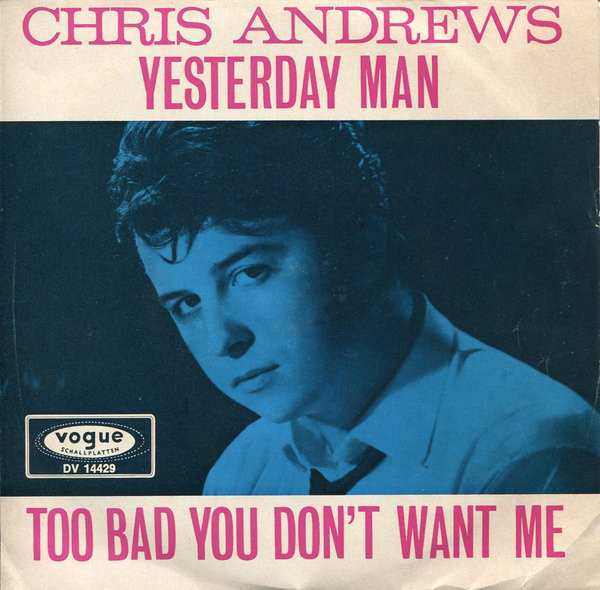
Beat music has rapidly conquered not only the hearts of the young, but also the West German charts. However, there is still life in the schlager genre, beloved by the older generation. And so the beat song "Yesterday Man" by British singer Chris Andrews has been replaced at the top of the West German single charts with the treacly "Ganz in Weiß" (All in White) by the young Schlager singer Roy Black. Ironically, Roy Black, whose real name is Günther Höllerich, started out as a rock singer and named himself after Roy Orbison, but switched over to the schlager side, when he found no success in his chosen genre.
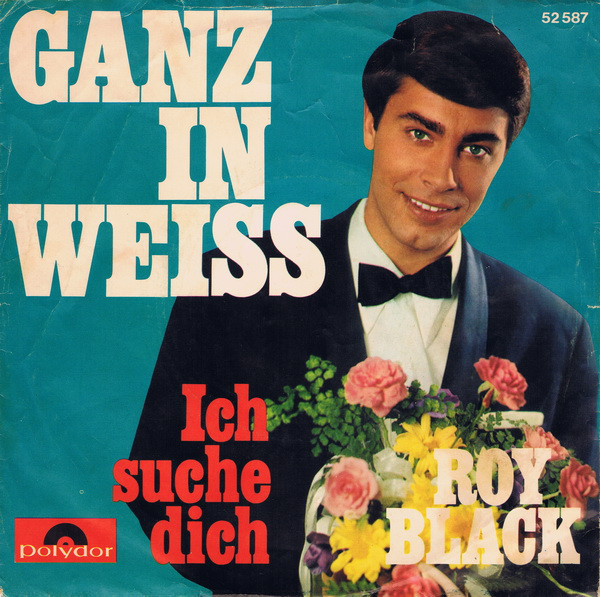
Robbers; Pop Art and Controversy:
Meanwhile, my hometown of Bremen has become embroiled in a massive controversy that began in the most unlikely of places, namely behind the white neoclassical façade of the more than fifty-year-old Bremen theatre. For on March 6, 1966, at 2 AM in the night, a new production of Friedrich Schiller's 1781 play Die Räuber (The Robbers) premiered, directed by Peter Zadek.
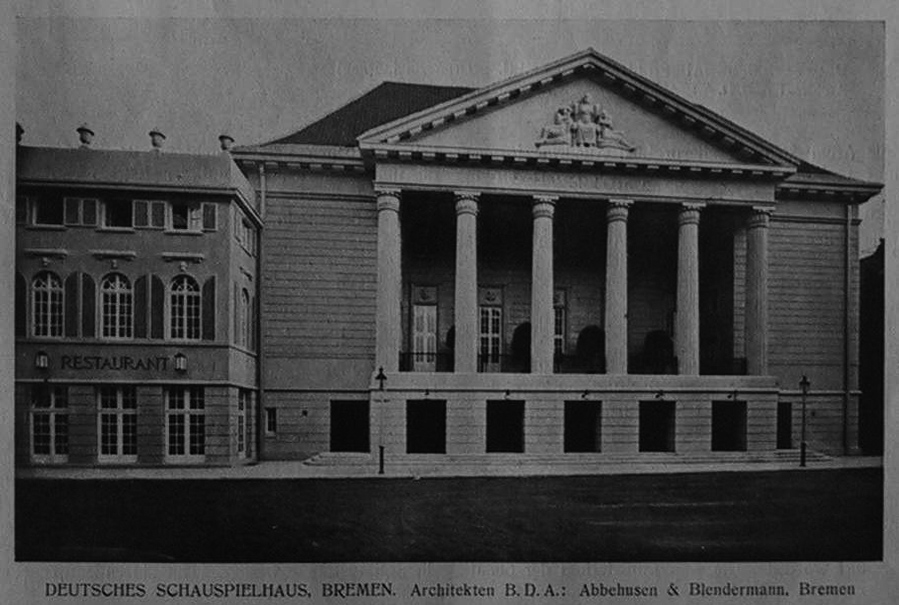
So what on Earth makes a new production of an almost two-hundred-years old play, a classic of German literature that generations of students suffered through in school, so controversial and shocking? Well, you see, this is not your usual production of The Robbers, with actors dressed in faux 18th century garb and painted backdrops of the deep dark woods, through which the titular robber gang and their leader, the aristocratic outlaw Karl Moor, swagger on their quest for vengeance, freedom and paternal love.
Instead, the stage was drenched in neon light. The painted backdrop, courtesy of head set designer Wilfried Mink, depicted not deep dark woods and gothic castles, but a colourful pop art scene of a woman sniper that was clearly inspired by Roy Lichtenstein's comic strip paintings. It's a striking image and one that brought a smile to my face. However, the more conservative theatregoers were so shocked by so much pop that they booed as soon as the curtains went up.
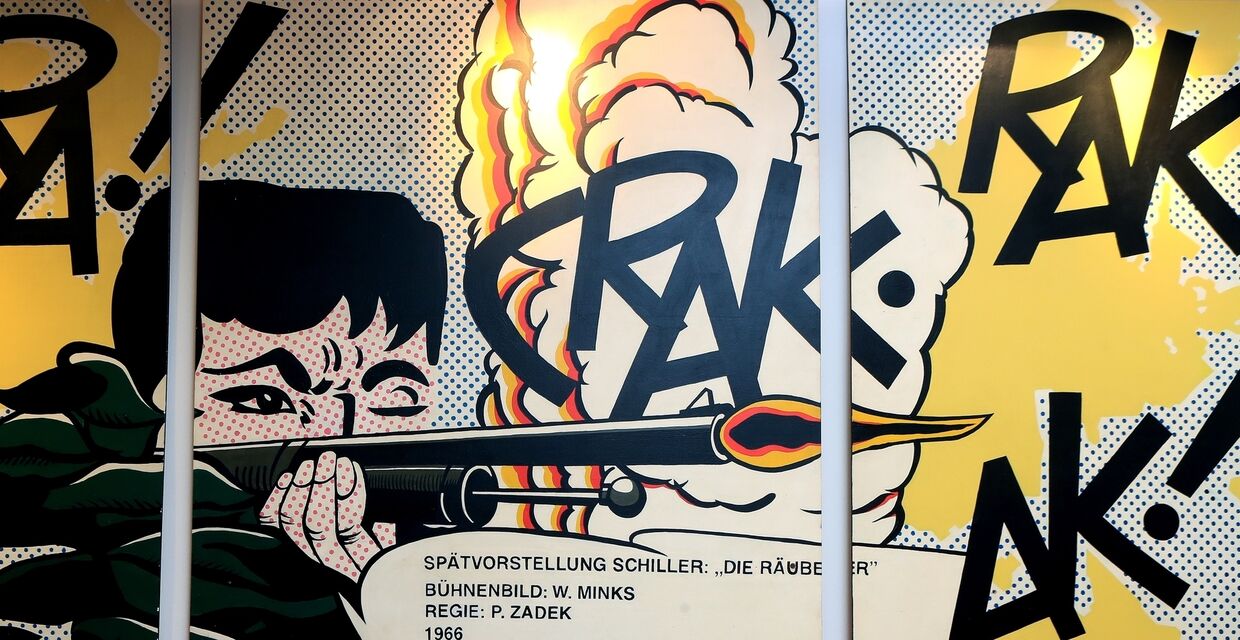
Romantic Outlaws in the Deep Dark Woods:
In front of this pop art backdrop, the familiar tragedy we all remember from our school days played out. The aristocratic Count von Moor has two sons, the handsome Karl, his oldest son and heir, and the ugly and deformed younger son Franz. The Count prefers Karl, who is a wastrel and womanizer, and rejects the dutiful Franz. The fact that both Karl and Franz are in love with the virginal Amalia doesn't help matters either.
One thing I liked about the Bremen production of The Robbers is that the talented actors playing Karl, Franz and Amalia are all young and about the same age as the characters they play. This is a far cry from fifty-year-old veteran actors portraying the youthful follies of characters in their twenties.
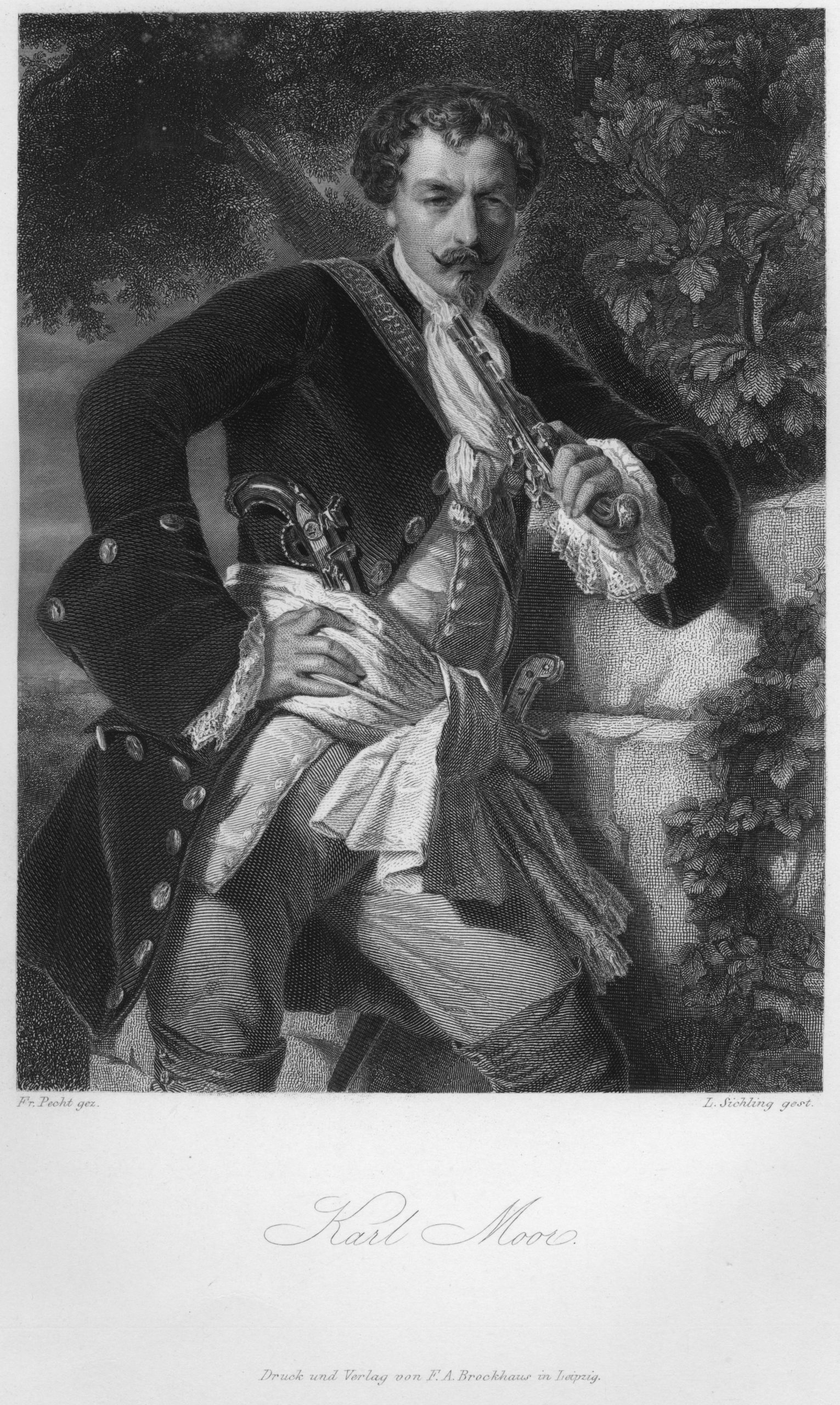
In most productions of The Robbers, the actors wear 18th century garb, which Karl complements with the slouch hat of the romantic highwayman. In Bremen, however, Karl (portrayed by Vadim Glowna whose mother-in-law Ada Tschechowa was one of the victims of the Lufthansa flight 005 crash in January) dresses in a Superman inspired costume, which looks striking, though it doesn't provide much camouflage in the deep dark woods of Bohemia. Franz is dressed up like a monkey with a tail, a hunchback and huge fake ears, probably because Franz is supposed to be ugly and the talented 25-year-old Swiss actor Bruno Ganz, who portrays him on stage, is rather handsome. Amalia (Edith Clever), meanwhile, emphasises her virginal purity by wandering about in a white nightgown. Again, you would not think that this is particularly shocking, but the furious boos and walk-outs from parts of the audience suggest otherwise.
After his wild student days, Karl wants to change his wicked ways and writes a letter to his father, begging for forgiveness. However, his jealous brother Franz replaces the letter with a forgery, which portrays Karl as a rapist and murderer, whereupon the Count disinherits Karl and banishes him from the castle. This turn of events shocks Karl so much that he and his student friends promptly decide to form a robber gang to strike back at society and the parents who wronged them. And because these intellectual robbers are devoted to democracy, Karl is elected captain of the gang.
The romantic outlaw, often a nobleman who was wronged and has fallen on hard times, is a stock figure in German literature and legend from the 18th century well into the 20th. As with many legends, there is a kernel of truth to the tale of the romantic robber, for the highways and woodlands of Germany were indeed infested with gangs of bandits well into the 19th century, though those bandits were usually neither noble nor aristocratic nor idealistic university students but just plain criminals.
The Robbers is more realistic than most tales of romantic bandits. And so the idealistic Karl quickly realises that life as a robber is not all it's cracked up to be, when his comrades develop a taste for killing and his gang burns down an entire town, while rescuing one of their own from the gallows. The Bremen production stages the gang's reign of terror by pouring buckets of fake blood onto the stage, enough to shock Karl into returning home and part of the remaining audience to walk out in disgust. You'd think people would have noticed that The Robbers is a very bloody play (Karl's gang kills 82 people when they burn down the town) before seeing the blood actually flow on stage.
A Bourgeois Tragedy:
Back at the castle, Karl's villainous brother Franz has forged yet more letters, informing his father and Amalia that Karl has died. Bruno Ganz spends the first two acts of the play running across the stage in his monkey outfit, calling, "The mail has come."
Furthermore, Franz plots to murder his father to become count. When this fails, he simply locks his father in the dungeon and takes over the castle. Franz also tries to seduce Amalia, but Amalia would rather join a convent than marry Franz.
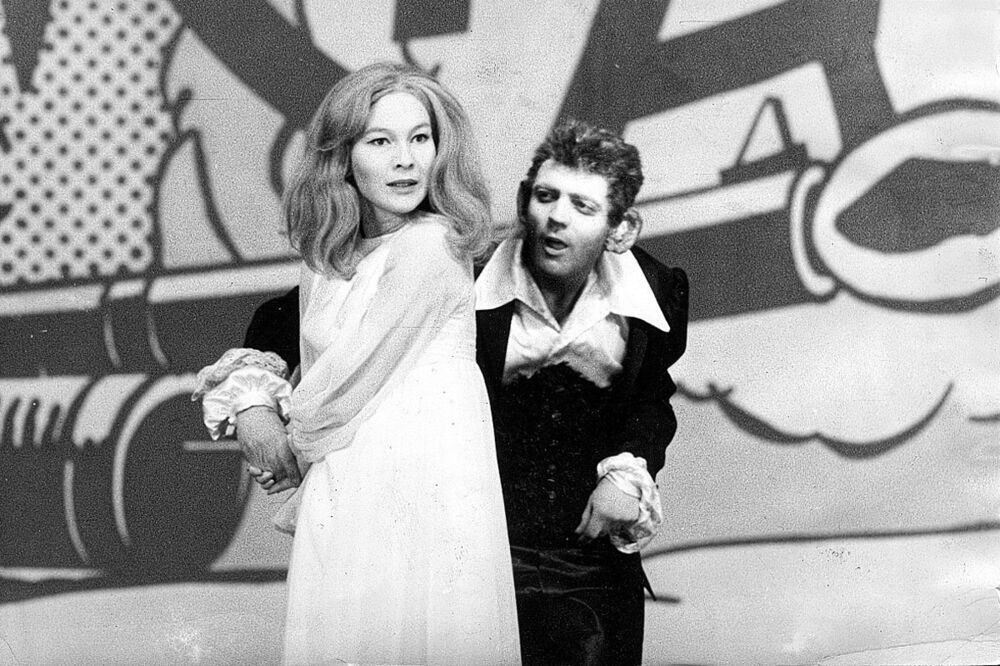
The disguised Karl blunders into this sorry state of things. He finds his father in the dungeon and Amalia still mourning his death and decides to wreak vengeance on his treacherous brother. But once again, things don't go Karl's way. Terrified of the robbers, Franz commits suicide. When Karl unmasks in front of his father, the old Count promptly dies of shock (thankfully, none of the audience members followed suit). The unruly robbers burn down the castle.
Only the faithful Amalia wants to stay with Karl, but Karl tells her that the life of a robber is no place for a woman. But he can't leave the gang, because he swore a holy oath. Now Amalia wants to die and begs Karl to kill her, which he reluctantly does. In the end, the devastated Karl surrenders to the authorities, first making sure that a poor man with thirteen kids gets the considerable prize on his head. Schiller doesn't tell us what happened to Karl afterwards, but anybody with a bit of knowledge of history can guess. Captured bandits were almost all executed, hanged or beheaded if they were lucky and broken on the wheel if they were not.
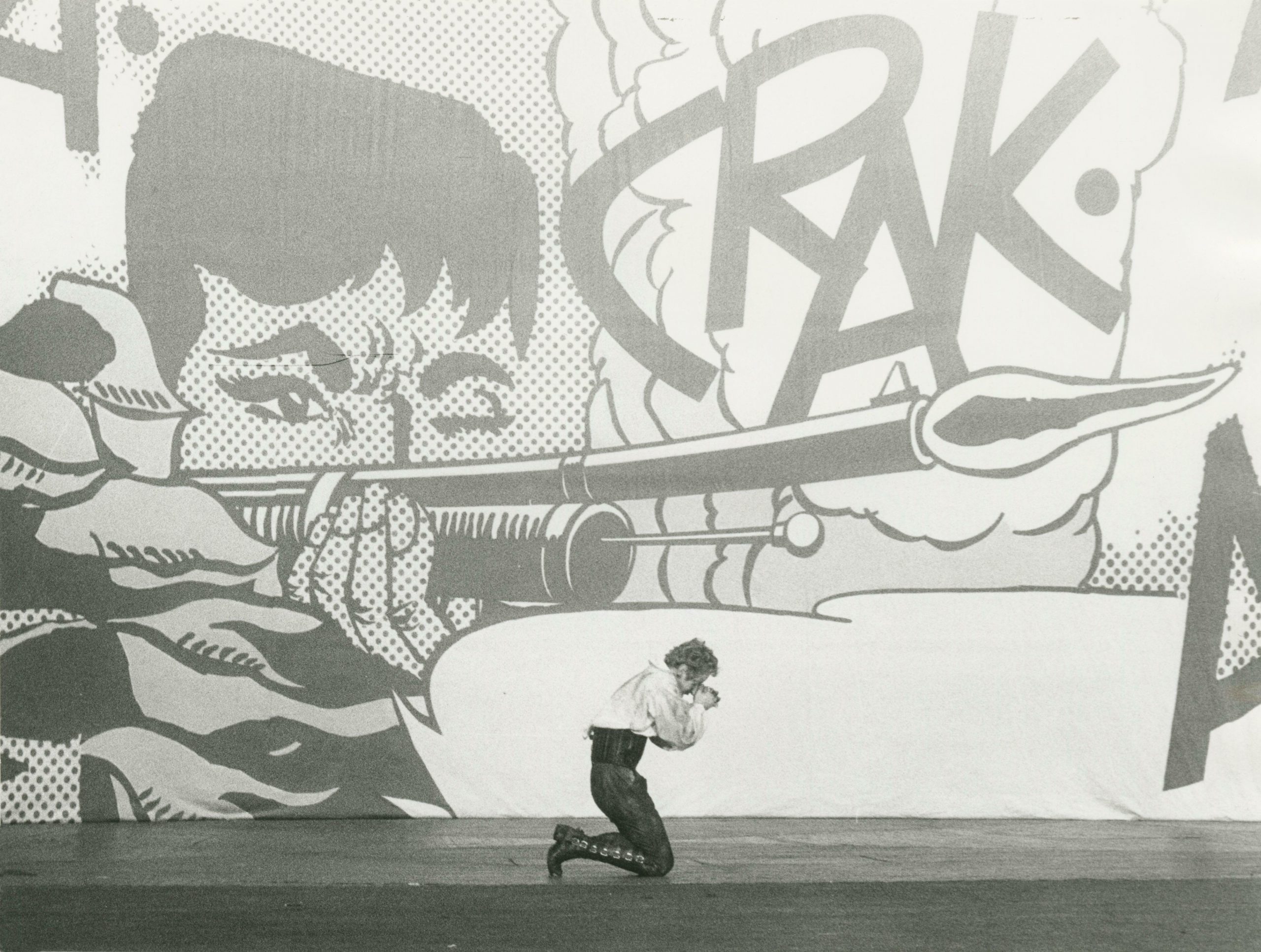
The Robbers is one of Schiller's best plays. However, I hated the ending when I first read it in school, particularly the fate of Amalia. Why couldn't women become romantic outlaws, too, and why couldn't Karl and Amalia live happily ever after in the deep dark woods? As an adult, I still don't like the ending very much, though it is more realistic than Karl and Amalia playing Robin Hood in the Bohemian woods. Because let's face it, Karl's robbers are murderous bandits who have killed countless people. Though Amalia could still have moved on, especially since Karl is very much an idiot for all his noble swagger. You don't join a criminal gang and start killing people just because your parents have wronged you.
Karl's brother Franz may be the villain, but he is still sympathetic, also due to Bruno Ganz's great performance. For while Karl lost his father's love, Franz never had it in the first place. He was rejected and mistreated all his life for his physical defects that he had no control over. His deeds are inexcusable – but then so are Karl's – but I can understand his motivation. Meanwhile, the true villain of the play is the old Count with his favouritism and abominable parenting skills.
Generational Conflict Played out on Stage:
At its heart, The Robbers is a play about the conflict between an older generation that is set in its ways and a young idealistic generation crying out for freedom and change. This conflict was playing out when Schiller first wrote the play only a few years before the French Revolution and it is once again playing out all over West Germany, where a generation born during the war and immediate postwar years is rebelling against their Nazi parents. Today's young rebels may protest against the war in Vietnam and they may join a commune or a motorcycle gang rather than a robber band, but the conflict at the heart of The Robbers is still as current as it ever was.
This generational divide is also mirrored in the reactions to Peter Zadek's production of The Robbers. Older theatregoers, who often have a subscription to see every production of the season, were infuriated by the unexpected visuals on stage to the point that they walked out en masse or wrote letters of protest to the local newspaper. In fact, theatre manager Kurt Hübner explicitly warned the more conservative viewers that this particular production of The Robbers would not be what they expect. And indeed, the premiere took place after midnight specifically to keep the conservative subscription viewers away. Meanwhile, younger people, many of whom rarely bother to go to the theatre at all because the productions are so stuffy and boring, were thrilled at this colourful and fresh adaptation of a classic play that everybody remembers from school.
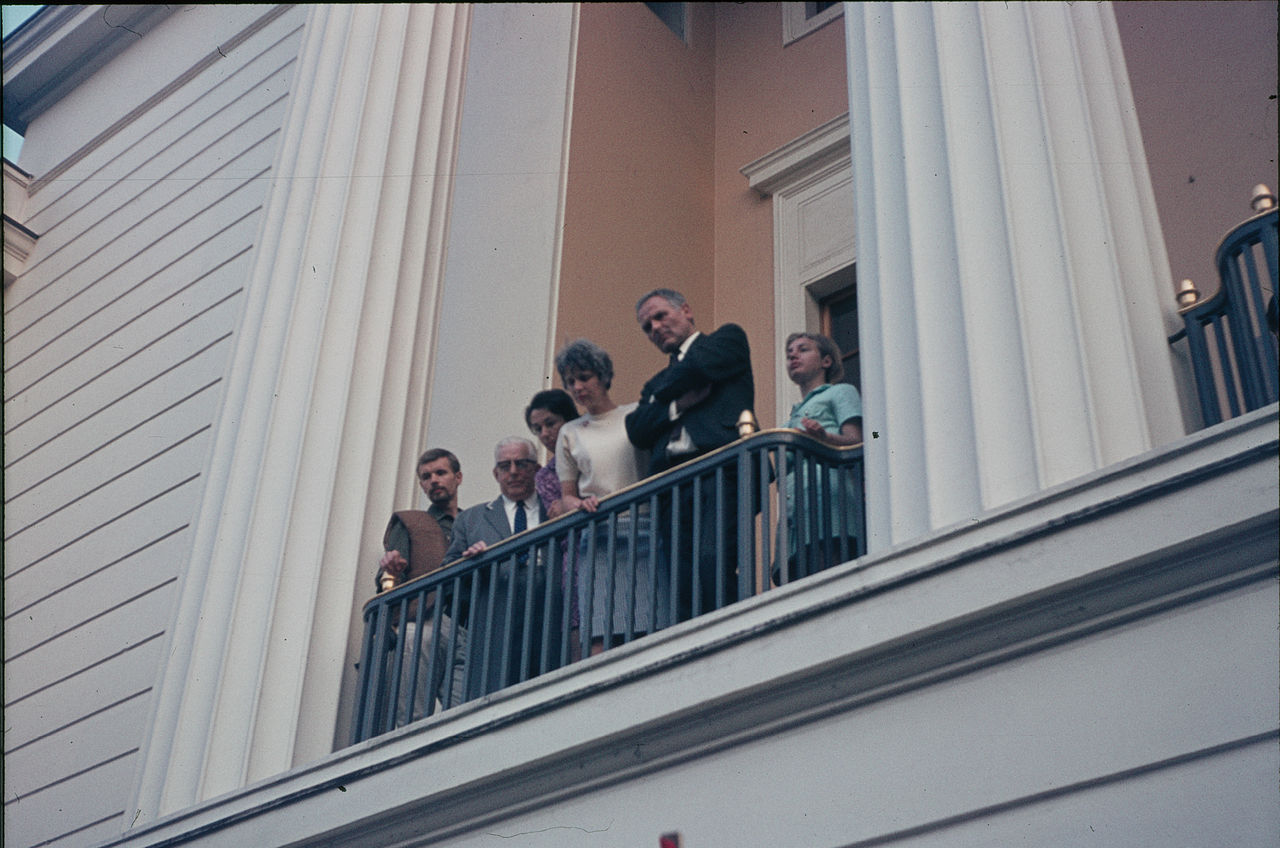
A Sixty-Year War:
The controversy about the Bremen production of The Robbers is also part of a larger battle about how faithful to the text and the perceived intentions of the author a theatre production should be. This battle has been raging in theatres across Germany for sixty years now, beginning when Viennese actor and director Max Reinhardt ignored stage directions in favour of dreamlike three-dimensional sets on a revolving stage – shocking back in 1905. A few years later in 1919, director Leopold Jessner caused a veritable scandal when his production of Friedrich Schiller's play Wilhelm Tell was performed not in front of the expected painted alpine backdrop, but on a multi-level staircase type stage.
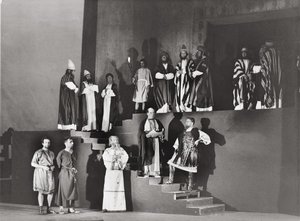
The Nazis drove out innovative directors like Reinhardt and Jessner, both of whom happened to be Jewish, and German theatres reverted to staid and stuffy naturalism. This style persisted after the war, promoted by conservative directors like Gustaf Gründgens (a not particularly flattering literary portrait of whom was the subject of a controversy last year).
But change was in the air and it came from the unexpected direction of the Green Hill of Bayreuth, home to the famous Richard Wagner festival. Here, director Wieland Wagner, grandson of Richard, threw out the horned helmets and naturalistic painted backdrops in favour of abstract set designs and sophisticated lighting effects.
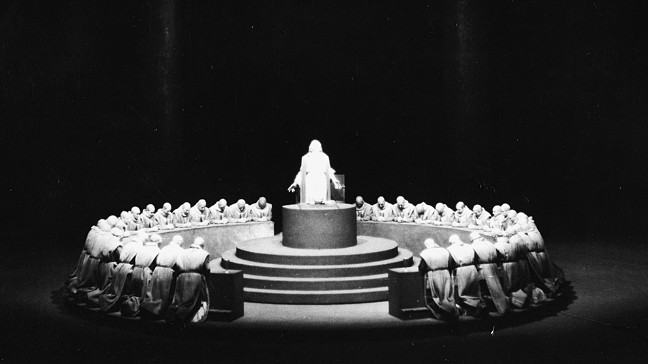
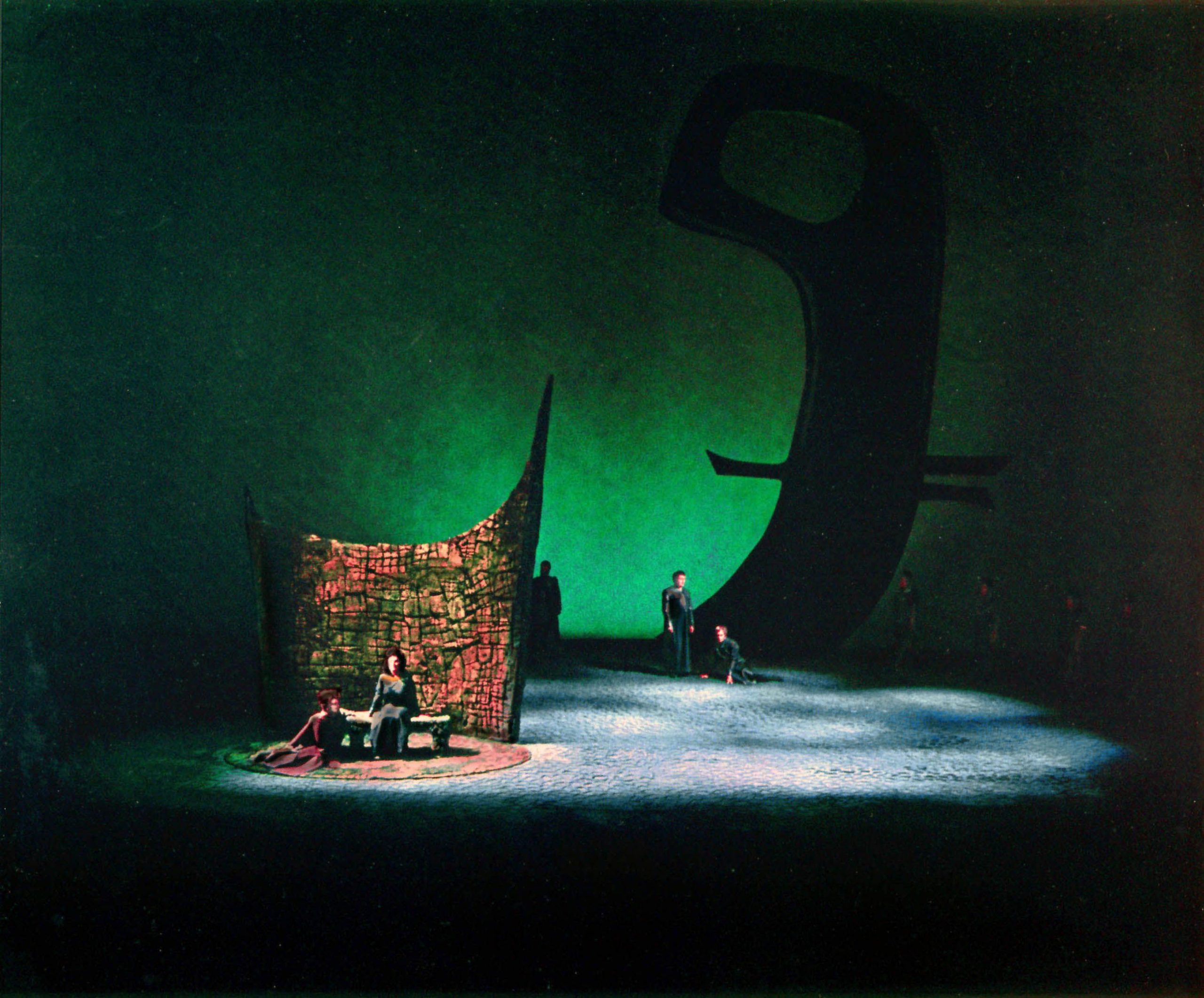
Modern opera productions may also be found elsewhere. Only last month, Boris Blacher's new opera Zwischenfälle bei einer Notlandung (Occurrences during an Emergency Landing) premiered in Hamburg. The barren stage was decorated only with an upright metal grid and electronic control consoles. The music was electronic and included tape recordings of plane engines and ocean waves. The plot was pure science fiction. A plane crashes on an island inhabited only by a stereotypical mad scientist and his robots. The scientist takes the surviving passengers prisoner, the passengers and robots team up to destroy the scientist's computers, in the end everything turns out to have been a plot to steal the scientist's research. The critics were politely puzzled and not sure what to make of it all.
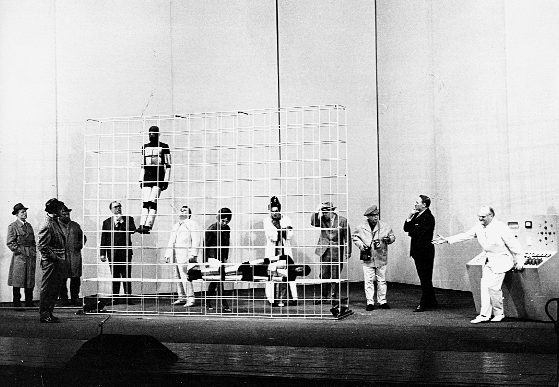
Meanwhile, the Bremen theatre mostly stuck to traditional productions. This changed when manager Kurt Hübner took over in 1962 and brought in young actors and directors with fresh ideas in addition to more traditional fare. The Robbers is not even the first modern production in Bremen. Only last year, a production of Frank Wedekind's 1891 play Frühlings Erwachen (Spring Awakening) premiered, also starring Vadim Glowna and Bruno Ganz. The stage was barren except for a giant photo of British actress Rita Tushingham who loomed above the stage as a symbol for the repressed sexual longing which leads to suicide, rape, teenage pregnancy and prison in the play. Oddly enough, the same critics who now complain about The Robbers generally liked that production of Spring Awakening.
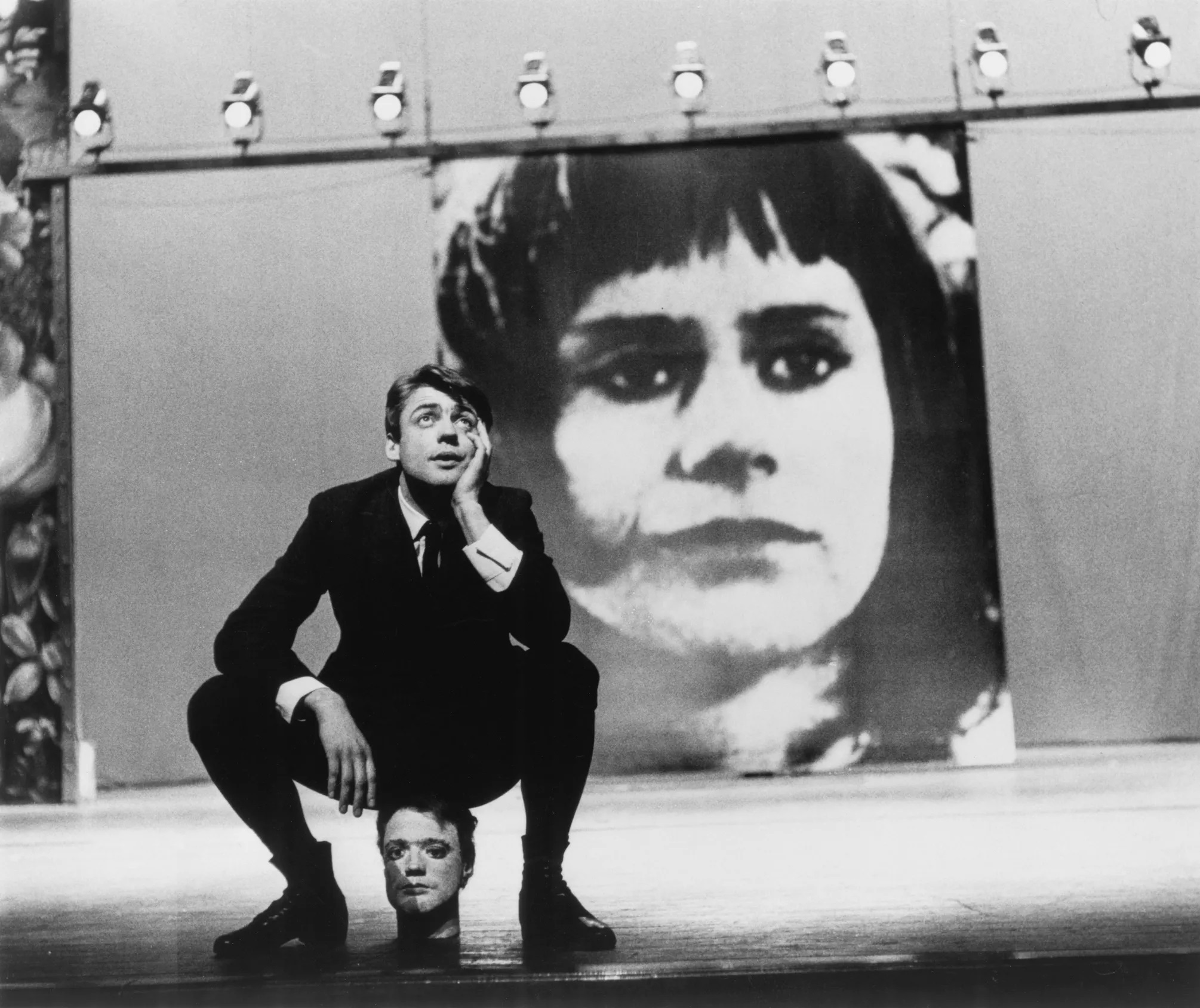
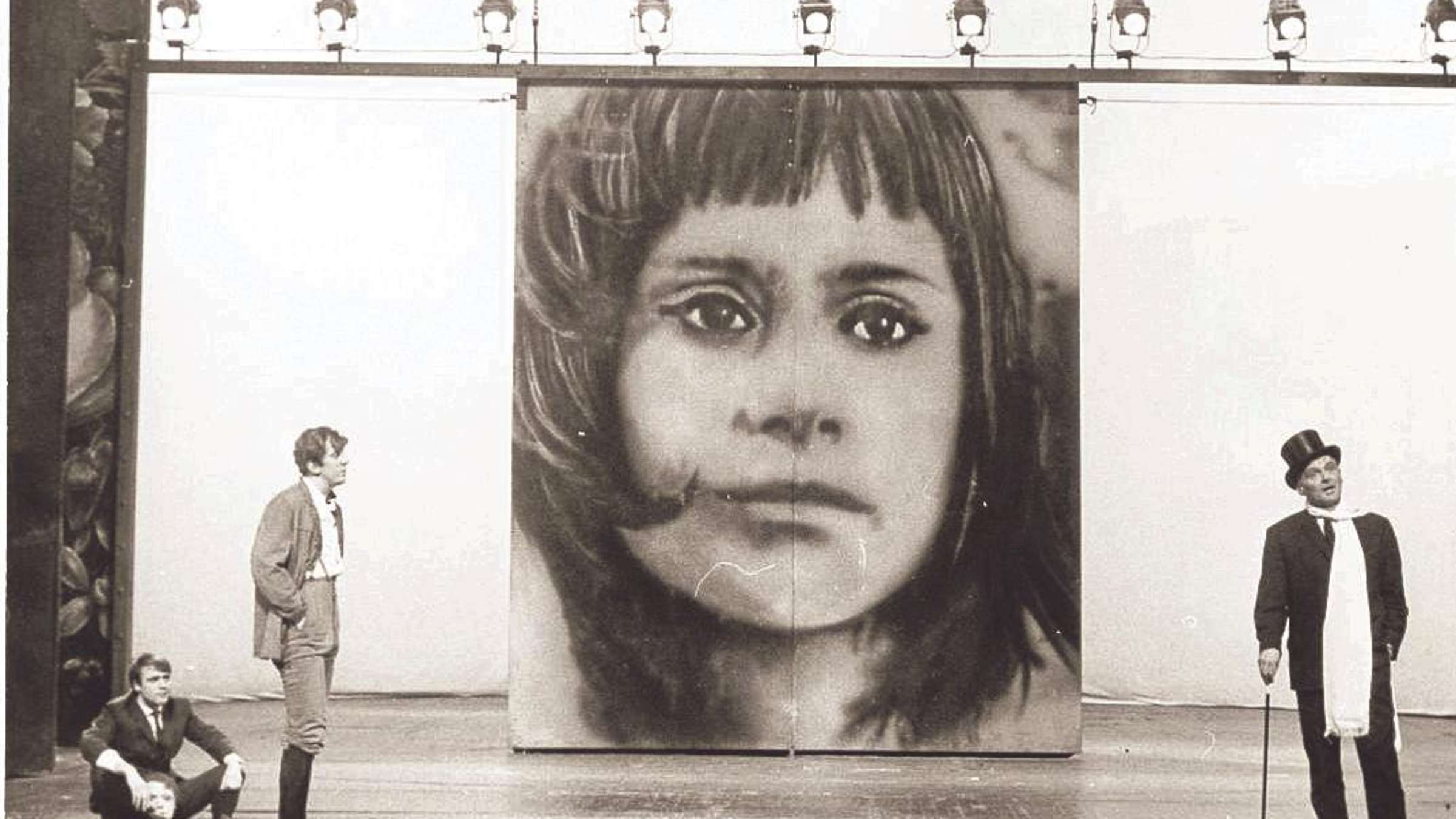
Authorial intentions:
The debate about how faithful a theatre production should be to the text and the author's intention tends to forget that in many cases, we have no idea what the author's intentions were. Bar a séance, neither Friedrich Schiller nor Frank Wedekind can tell us how they would prefer to see The Robbers or Spring Awakening performed.
Furthermore, stage performances are always a product of their time. In William Shakespeare's time, all parts were played by male actors. Yet no one accuses a contemporary production of being unfaithful to Shakespeare's intentions, just because Juliet is played by a woman. Nor do we expect baroque operas to be performed by castrated male singers, even though that's how it was done in the 17th century.
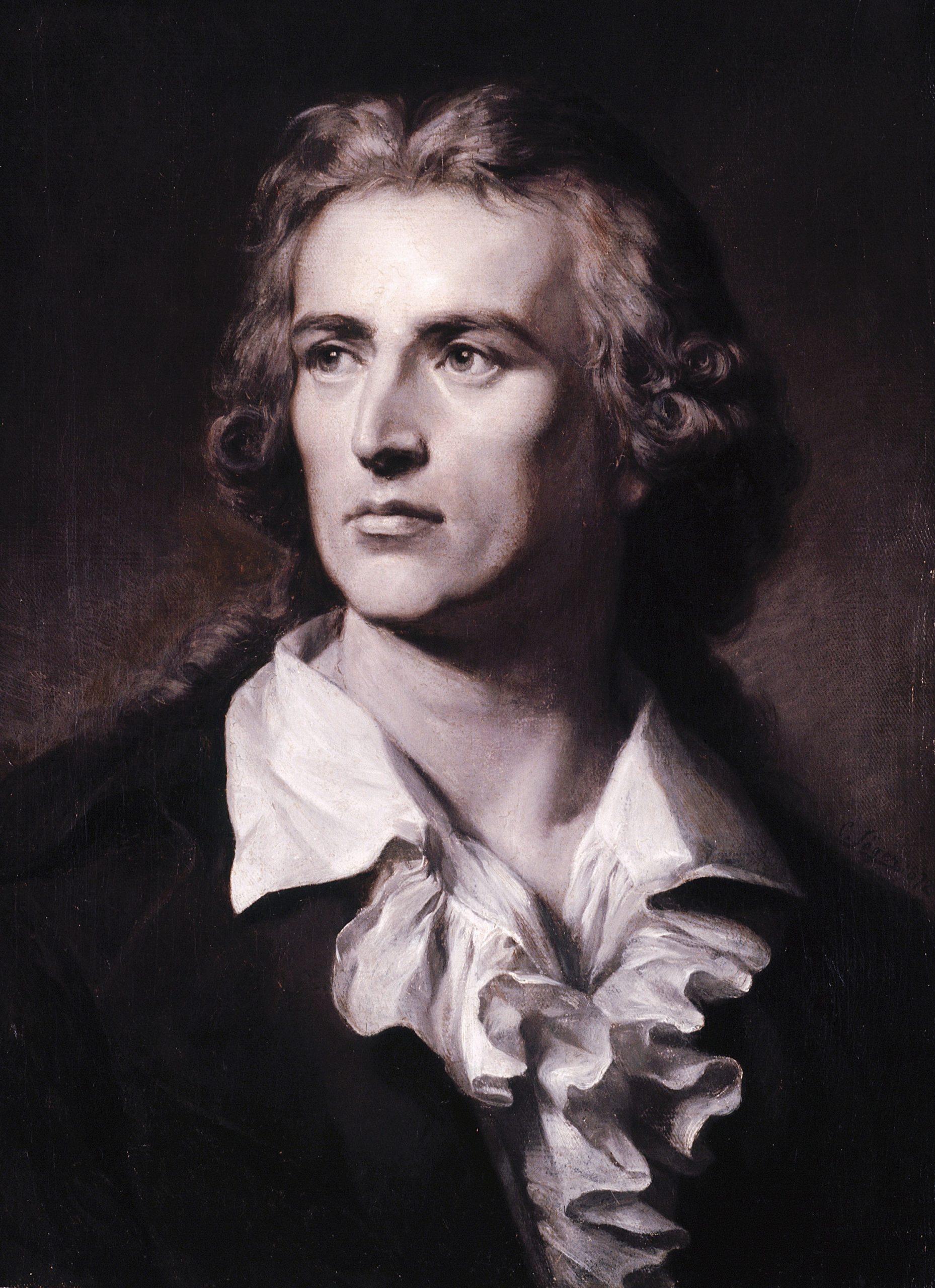
By the standards of the late 18th century, Friedrich Schiller was a revolutionary writer and The Robbers was widely viewed as a call for freedom and an indictment of tyranny to the point that post-revolutionary France granted him an honorary citizenship. When The Robbers premiered in 1781, it was greeted with enthusiastic applause by an overwhelmingly youthful audience, an audience much like those who stayed to the end of the Bremen production and applauded the actors and director.
Which production of The Robbers would Friedrich Schiller prefer: one where actors traipse about in old-fashioned clothes and declaim their dialogues in front of painted backdrops, while an elderly and conservative audience gradually falls asleep in the auditorium, or the Bremen production with its brightly coloured sets, youthful actors and equally youthful audience?
I think the answer is clear.
The Journey is once again up for a Best Fanzine Hugo nomination — and its founder is up for several other awards as well! If you've got a Worldcon membership, or if you just want to see what Gideon's done that's Hugo-worthy, please read his Hugo Eligibility article! Thank you for your continued support.

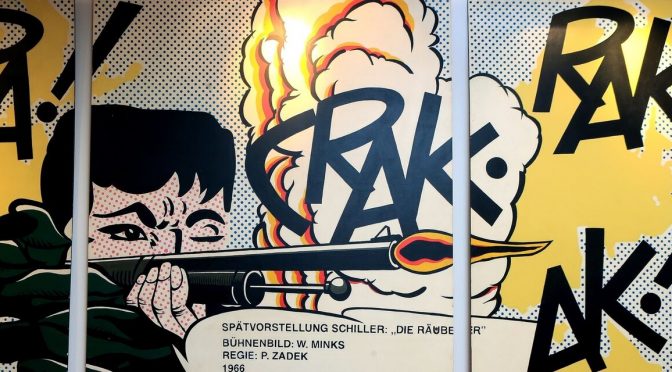

That show sounds fascinating! I imagine that young Friedrich Schiller would find common cause with the new generation and perhaps even their modern aesthetic. I follow theater from New York City, and I haven't heard about this exciting moment in German theater. Of course, I can't wait to see Marat/Sade when it reaches Broadway later this year. Right now the biggest shows in NYC are probably "The Odd Couple," "Fiddler on the Roof," and the sleeper hit "Man of La Mancha," based on Cervantes! None of these are my style, but two weeks ago a new drama opened, "The Lion in Winter," and as historical dramas go, it's pretty incredible.
More provocative work here in Manhattan happens in smaller theaters in and around Greenwich Village. Samuel Beckett has a few plays downtown, one called "Krapp's Last Tape" that's paired with a one-act by Edward Albee (who wrote "Who's Afraid of Virginia Woolf," the biggest American play in a decade). A young black playwright, LeRoi Jones, wrote a show called "Dutchman" last season that had a similar sense of estrangement.
The younger generation puts its thoughts onstage at the great Caffe Cino in the Village. The theater itself caught fire last fall, but it just recently reopened. And the real story downtown is the Open Theatre, a collective of young artists staging work that's provocative on pretty much every level you can think of, especially politically. Also, Caffe Cino & the Open Theatre both stage work written & directed by women, an under-represented class in theater as in science-fiction. Anyhow, Cora, they're probably the closest in spirit to the work you describe in Bremen. What a cool piece of news—thanks for posting!